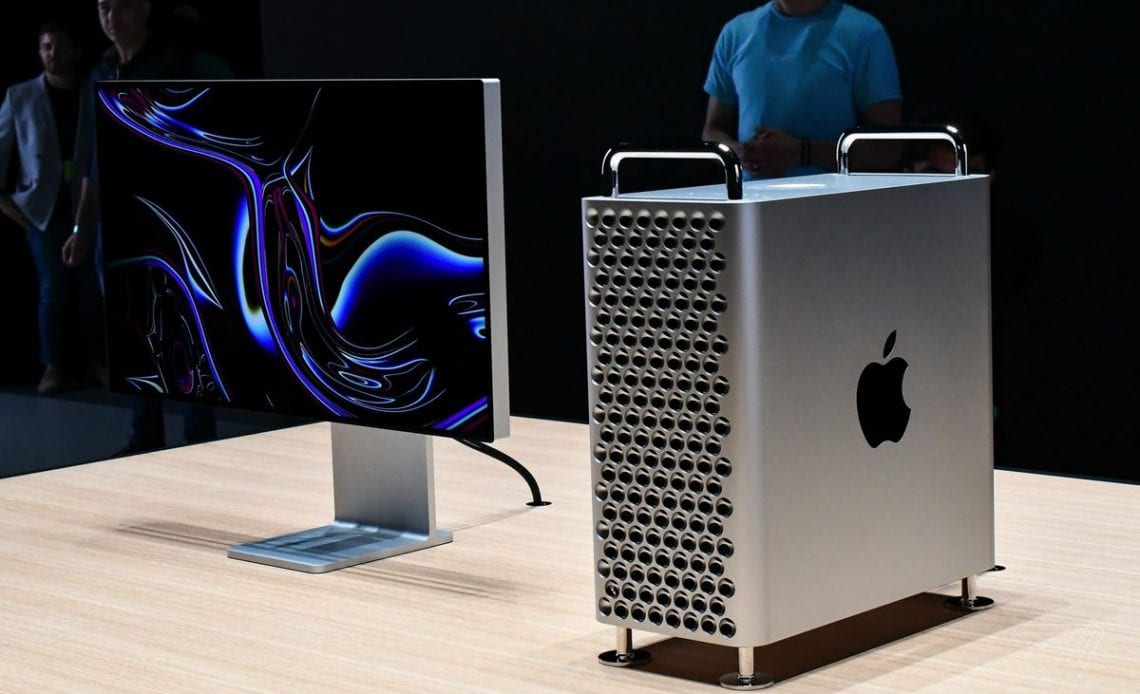
The US Trade Representative’s office has denied Apple tariff relief on five parts for its new Mac Pro computer, as reported by Bloomberg. Each of the imported parts — the optional wheels, a circuit board for managing input and output ports, power adapter, charging cable, and a cooling system for the processor — are now likely to be subject to the proposed 25 percent tariff on goods imported from China.
Apple initially asked the Trump administration to exclude parts for its Mac Pro desktop from tariffs back in July, including the exterior enclosure, the Magic Mouse 2, and the Magic Trackpad. The office recently granted Apple exclusions on 10 different items, so not every imported part will be subject to the tax.
The news comes on the heels of Apple announcing it would switch the manufacturing of the new Mac Pros from China to its Austin, Texas, facility, where the company has been assembling the prior-generation Mac Pros since 2013. The denial is also happening on the same day Trump took to Twitter to applaud the company’s decision to make the computer domestically.
Great news! @Apple announced that it is building its new Mac Pro in Texas. This means hundreds of American jobs in Austin and for suppliers across the Country. Congratulations to the Apple team and their workers! https://t.co/FMrWFq9wcz
When Apple decided to switch manufacturing from China back to its existing US facility, the company said in a press release that the change was possible due to a “federal product exclusion” on “certain necessary components.” The company says that the value of its American-made components in the new Mac Pro is 2.5x more valuable than the previous generation, and so a tariff exclusion could save Apple enough money to make US assembly worthwhile.
Exclusions are considered based on three criteria: if the product is only available from China and if a comparable product is available in the US or third countries, if the added duties on the product would cause significant economic harm, and if the product is strategically important to Chinese industrial programs.
According to Bloomberg, the USTR said the five exclusion requests were denied because they “failed to show that the imposition of additional duties on the particular product would cause severe economic harm to you or other US interests.”
The Trump administration has been proposing tariffs as high as 25 percent on computers as part of an ongoing trade battle with China. In July, Trump tweeted that Apple would not receive an exemption for Mac Pro parts, saying, “Make them in the USA, no Tariffs!” The tech industry as a whole, including Microsoft, Intel, and Nintendo, have pushed back on the tariffs. In a June filing, Apple said the added fees “would result in a reduction of Apple’s US economic contribution” and “tilt the playing field in favor of our global competitors.”
Author: Dani Deahl
Source: Theverge



